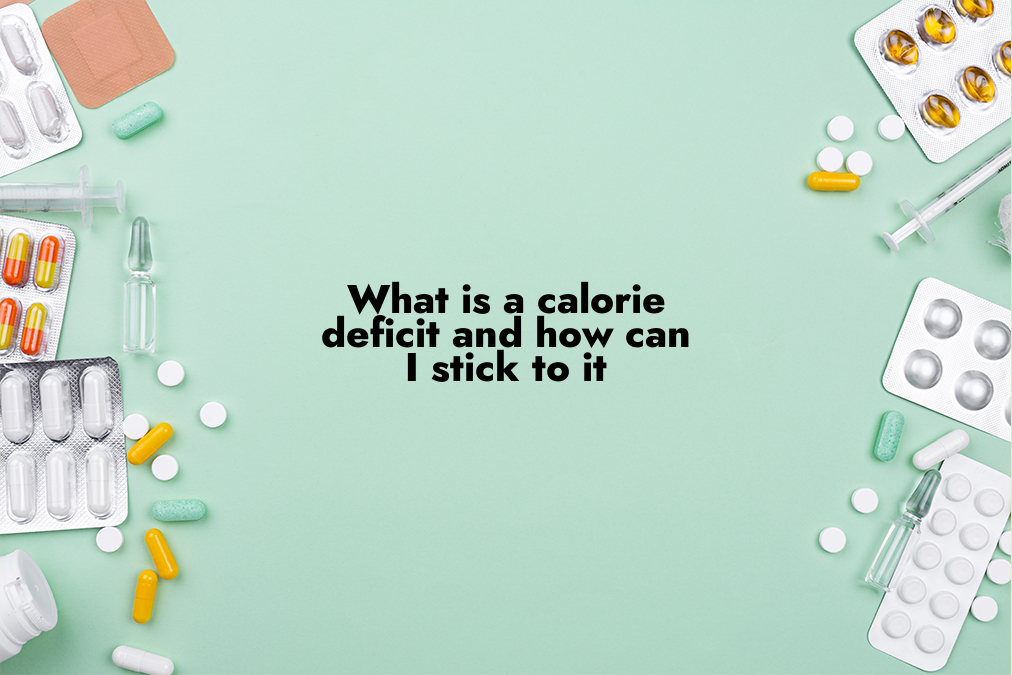In today’s fast-paced world, achieving and maintaining a healthy weight can be a challenging task. With countless diets, fitness trends, and conflicting advice, it’s easy to feel overwhelmed. However, at the core of effective weight management lies a fundamental concept: the calorie deficit. In this article, we will delve into the intricacies of what a calorie deficit is and, more importantly, how you can stick to it for long-term success.
Understanding the Basics
What is a Calorie Deficit?
A calorie deficit is a fundamental principle of weight loss. Simply put, it means that you are burning more calories than you consume. When you create a calorie deficit, your body starts using its energy reserves, primarily stored as fat, to meet its energy needs. This results in gradual weight loss.
Why is it Important?
A calorie deficit is the foundation of weight loss because it addresses the fundamental equation of weight management: calories in versus calories out. To shed excess pounds, you must consume fewer calories than your body requires, forcing it to tap into its fat stores.
How to Create a Calorie Deficit
Calculate Your Maintenance Calories
The first step in creating a calorie deficit is to determine how many calories your body needs to maintain its current weight. Several online calculators can help you estimate your maintenance calories based on factors like age, gender, weight, and activity level.
Set a Realistic Calorie Goal
Once you know your maintenance calories, aim to consume fewer calories each day to create a deficit. A safe and sustainable target is to aim for a deficit of 500 to 750 calories per day. This typically results in a gradual and healthy weight loss of about 1 to 1.5 pounds per week.
Focus on Nutrient-Dense Foods
While calorie counting is essential, the quality of the calories you consume matters too. Opt for nutrient-dense foods that provide essential vitamins, minerals, and satiety. Include plenty of fruits, vegetables, lean proteins, whole grains, and healthy fats in your diet.
Monitor Your Progress
Consistency is key when sticking to a calorie deficit. Keep a food journal, use a calorie-tracking app, or simply make a mental note of what you eat each day. Regularly assess your progress to ensure you’re on track to reach your weight loss goals.
Sticking to Your Calorie Deficit
Practice Portion Control
Controlling portion sizes is vital for maintaining a calorie deficit. Be mindful of serving sizes, and avoid mindless eating in front of the TV or computer. Eating slowly and savoring each bite can help you feel satisfied with smaller portions.
Stay Hydrated
Sometimes, thirst can be mistaken for hunger. Drink plenty of water throughout the day to stay hydrated and curb unnecessary snacking. Herbal teas and infused water can also add variety to your beverages without adding extra calories.
Plan Your Meals
Meal planning and preparation can make sticking to a calorie deficit much more manageable. Cook balanced meals in advance, so you always have a healthy option readily available. This reduces the temptation to reach for high-calorie convenience foods.
Incorporate Physical Activity
While diet plays a significant role in creating a calorie deficit, exercise can further boost your results. Engage in regular physical activity, such as walking, jogging, swimming, or strength training, to burn extra calories and improve your overall health.
Addressing Common Challenges
Dealing with Hunger
Feeling hungry is normal when you’re in a calorie deficit, but it doesn’t have to derail your progress. Choose high-fiber foods and snacks that provide long-lasting satiety. Additionally, consider spreading your daily calorie intake across multiple small meals and snacks to combat hunger.
Overcoming Plateaus
Weight loss progress may not always be linear. Plateaus can be frustrating, but they’re a normal part of the journey. When you hit a plateau, reassess your calorie intake and exercise routine. Sometimes, your body may need a change to continue shedding pounds.
Conclusion
In conclusion, a calorie deficit is the cornerstone of effective weight loss. By consistently consuming fewer calories than your body needs and making healthy food choices, you can achieve and maintain a healthier weight. Remember that this journey is about more than just numbers; it’s about improving your overall well-being. Embrace the challenge, stay committed, and you’ll find success on your path to a calorie deficit that you can stick to for life.

